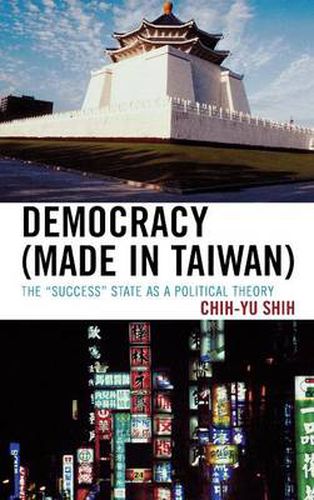Readings Newsletter
Become a Readings Member to make your shopping experience even easier.
Sign in or sign up for free!
You’re not far away from qualifying for FREE standard shipping within Australia
You’ve qualified for FREE standard shipping within Australia
The cart is loading…






Democracy (Made in Taiwan) argues that post-colonialism and Confucianism met at the historical moment when democratization and liberalization occurred in Taiwan. The familiar political science standards take little note of either Confucianism or postcolonialism. In fact, these standards are unbalanced, wishful, and Washington-centric, and result in a misunderstanding of Taiwan’s performance. The liberal bias blinds international observers to the hybrid characteristics embedded in Taiwan’s postcolonial history. Although this book is not about failing states per se, its criticism of the standards of success alludes to the problematic nature of the mainstream view of failing states. In many aspects, Taiwan is a disguised failure, or even a fake, in the sense that its democratization adopts a populist identity strategy rather than a liberal one. In addition, its foreign policy compliance to hegemonic leadership is characterized by anti-China determination, instead of a realist approach involving the calculation of power. Having said this, the book does not criticize Taiwan for failing liberalism, in order to prevent the liberal teleology from lingering on. Instead, Taiwan serves as an arena of polemics on political science in this book. By rewriting domestic liberalism and external realism into meanings unknown to the hegemonic power, Democracy (Made in Taiwan) celebrates Taiwan’s postcolonial fluidity. Embedded in a kind of ontological anomaly beyond the scope of mainstream political science, which takes for granted the ontology informed by individualism in domestic politics and statism in international relations, Taiwan’s case appears subversive not because of the subversive nature of postcoloniality, but due to the inability of political science’s liberalism to make sense of postcoloniality. Through decoupling the idea of political science from the entity known as Taiwan, this book attempts to achieve two goals: to re-present Taiwan and to call for reflexive political science.
$9.00 standard shipping within Australia
FREE standard shipping within Australia for orders over $100.00
Express & International shipping calculated at checkout
Democracy (Made in Taiwan) argues that post-colonialism and Confucianism met at the historical moment when democratization and liberalization occurred in Taiwan. The familiar political science standards take little note of either Confucianism or postcolonialism. In fact, these standards are unbalanced, wishful, and Washington-centric, and result in a misunderstanding of Taiwan’s performance. The liberal bias blinds international observers to the hybrid characteristics embedded in Taiwan’s postcolonial history. Although this book is not about failing states per se, its criticism of the standards of success alludes to the problematic nature of the mainstream view of failing states. In many aspects, Taiwan is a disguised failure, or even a fake, in the sense that its democratization adopts a populist identity strategy rather than a liberal one. In addition, its foreign policy compliance to hegemonic leadership is characterized by anti-China determination, instead of a realist approach involving the calculation of power. Having said this, the book does not criticize Taiwan for failing liberalism, in order to prevent the liberal teleology from lingering on. Instead, Taiwan serves as an arena of polemics on political science in this book. By rewriting domestic liberalism and external realism into meanings unknown to the hegemonic power, Democracy (Made in Taiwan) celebrates Taiwan’s postcolonial fluidity. Embedded in a kind of ontological anomaly beyond the scope of mainstream political science, which takes for granted the ontology informed by individualism in domestic politics and statism in international relations, Taiwan’s case appears subversive not because of the subversive nature of postcoloniality, but due to the inability of political science’s liberalism to make sense of postcoloniality. Through decoupling the idea of political science from the entity known as Taiwan, this book attempts to achieve two goals: to re-present Taiwan and to call for reflexive political science.